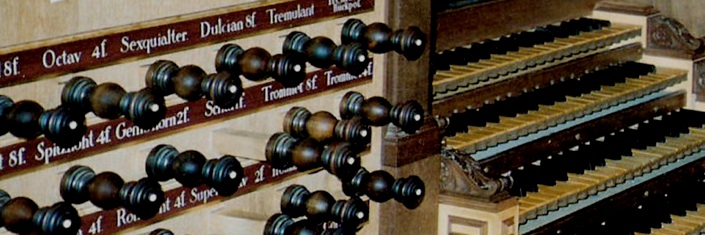LUCA BENEDICTI




“In my opinion playing and spreading the organ is a challenge. Once it was only an instrument to accompany celebrations, but it is at the same time an instrument with a huge literature and unlimited richness and potential.” From this incipit by the organist Luca Benedicti one can easily understand the meaning of the concert given in the Chiesa Collegiata of Castelsangiovanni within the 24th edition of the festival Antichi organi. Un patrimonio da salvare (Ancient organs. A heritage to be preserved).
[…]
The concert has been not excessively long, but the pieces has been wisely chosen by Benedicti, from Turin, highly experienced in this field and renowned not only in Italy. In the first part of the concert he played typically baroque pieces from foreign authors, while in the second part he gave place to music by Italian composers. He began with Dietrich Buxtehude (1637-1707), “Bach’s putative father”, the author of sound and magniloquent compositions of relevant charm. He then played another giant of organ music, Georg Friedrich Haendel (1685-1759), of whom the elegant voluntary Trumpet and Echo was executed, and the refined voluntary Said to be Purcell’s by Henry Purcell (1659-1695). The second part of the concert was opened with the remarkable transcription for organ of the Marcia Trionfale from Aida by Giuseppe Verdi (1813-1901), followed by the melodious Après un rêve by Gabriel Faurè (1845-1924). This was followed by the works by two Italian composers, Sonata per l’offertorio e Adagio per voce umana by Vincenzo Petrali (1832-1889) and five pieces from Opera 104 by Marco Enrico Bossi (1861-1925), both paradigmatic to understand the evolution of organ music.
DAL BAROCCO ALL’OTTOCENTO:
SOAVI MELODIE TRA LE NAVATE
From Baroque to the XIX century: sweet melodies between the naves











